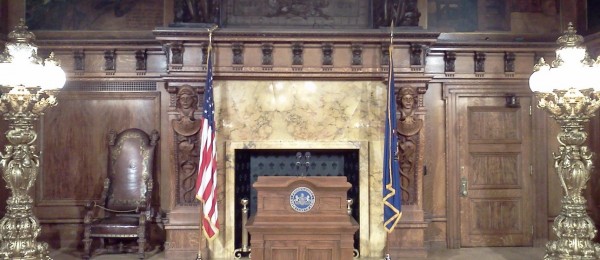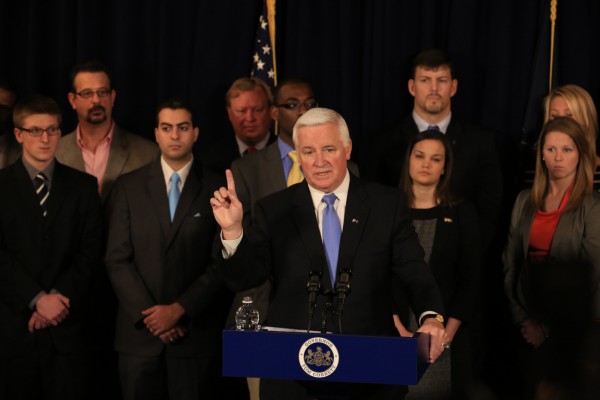Today marks one year since the death of Joe Paterno. At any other time in his tenure at Penn State, Paterno’s death and the subsequent anniversaries would be cause for overwhelming demonstrations of love, grief and a remembrance of Penn State football glory.
January of 2012, however, was like no other time in the history of Penn State University. Former Assistant Coach Jerry Sandusky was in a prison cell awaiting trial on unspeakable crimes; Paterno had been unceremoniously fired two months prior; and school trustees and other officials were scrambling to save any scrap of their former reputations. It was against this backdrop that Joseph Vincent Paterno slipped away in a hospital room on January 22, 2012.
It will be argued for decades whether or not Paterno received a fair shake in the days after Sandusky was charged, and then in the subsequent Freeh Report which named him – along with Graham Spanier, Tim Curley & Gary Schultz – as a prime culprit in an alleged conspiracy to sweep the Sandusky matter under the rug. The three surviving members of that quartet have yet to see their day in court. For Joe Paterno, no such day will come.
The Freeh Report included email chains between Spanier, Curley and Schultz, but no such emails from Paterno were found among the evidence laid out by the former FBI Director and his team. That’s because Joe didn’t use email. He had no smart phone, didn’t text and didn’t utilize social media like Twitter, which he once irreverently referred to as “Tweetlety Doo.” As such, there’s no electronic trail of Paterno’s role – or lack thereof – in the discussions that did take place behind closed doors in the Penn State athletic department from 1998 through 2011. One basic fact is often overlooked though: in this Keystone Cops version of an administration under former President Graham Spanier, Joe Paterno is the one person who did report the Sandusky allegations through the proper university channels.
For Paterno fans, there is that much. To sustain credibility, however, those same fans will have to admit that Joe let many people down when he did not follow up after seeing that no action was taken against Sandusky following his reporting the matter to Tim Curley. Let down most of all, the children who Sandusky continued to exploit and abuse. Even Joe knew that he didn’t do enough, saying he wished he had “done more.” That is why the Paterno legacy will remain tainted and why the first anniversary of his passing is met with a confusing and controversial multi-level of sadness among objective followers.
In the coming year, we’ll see more trials, more testimony and more finger pointing. We’ll hear others tell us what Joe Paterno did or didn’t know, and what he did or didn’t do over the now-scrutinized final decade-and-a-half of his 61-year tenure at Penn State. Paterno himself, though, is not here to confirm or deny anything we’ll hear from the mouths of defendants and attorneys who will be trying any tactic they can muster to keep their clients out of prison. Joe cannot take the stand, and without his direct testimony, his place in history will be forever debated.
(Brad Christman is the News Director of Radio Pennsylvania)







